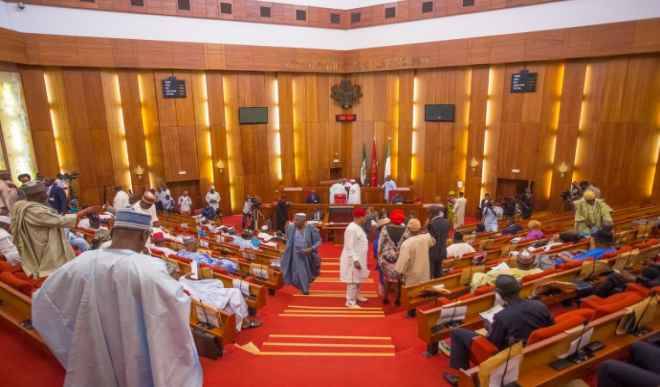Senate’s revitalisation of health sector
To every nation that seeks to achieve prosperity and development, issues of qualitative and affordable healthcare must be on its priority list. Recognising this fact made the 8th Senate to accord such legislative priority in terms of initiating and passage of relevant laws and interventions to achieve quality, accessible, and affordable healthcare system for Nigerians. […]


To every nation that seeks to achieve prosperity and development, issues of qualitative and affordable healthcare must be on its priority list. Recognising this fact made the 8th Senate to accord such legislative priority in terms of initiating and passage of relevant laws and interventions to achieve quality, accessible, and affordable healthcare system for Nigerians.
Such laws and interventions were made to further reduce the high-level medical tourism that has become a source of concern to all. In achieving the set objective, the Senate took the bull by the horns by resolving to comply with certain sections of the National Health Act (NHA) 2014, which since its enactment was always implemented in breach.
The Act had provided for the establishment of a Basic Health Care Provision Fund of at least 1% of the consolidated Revenue Fund (CRF) at the federal level, with counterpart funds from both the states and local governments. The fund, according to the Act, will be applied to the development of healthcare, infrastructure, provision of equipment, medication and the development of human resource at the primary level.
Fifty percent of the fund is expected to be managed by the National Health Insurance Scheme (NHIS) for the provision of basic health insurance for the vulnerable in our society, thereby improving access and health outcomes. However, in spite of the benefits of this provision, there was no conscious effort to implement it since its enactment, until when the current Senate stood ground to ensure its inclusion in the 2018 budget, presently with the president for assent.
Hinting on the resolve of the National Assembly to ensure the inclusion of 1% in the budget while addressing the 58th Annual General & Scientific Conference of the Nigeria Medical Association (NMA) on May 3, Senate President Dr. Abubakar Bukola Saraki said primary and universal healthcare provision is a key legislative agenda for the 8th Senate.
This bold initiative by the Senate and National Assembly by extension, didn’t go unnoticed, particularly by the stakeholders. Leading a delegation of Pharmaceutical Society of Nigeria (PSN) to a thank-you visit to the Senate President shortly after the passage of the budget, its President, Prof. Ahmed Yakasai reiterated that the 1% CRF provision by the National Assembly for primary healthcare in the 2018 budget will directly benefit the poor in the country.
Yakasai said: “The primary healthcare fund will greatly boost the healthcare system, reduce poverty, create jobs and improve the economy of Nigeria.”
Also, as part of its legislative intervention, the Senate in December 2017 convened a 2-day stakeholders roundtable in Kano on the rising drug abuse among the youths and married women. The outcome of the roundtable attended by governors, traditional rulers, religious leaders and organisations culminated into two draft bills to be introduced soon on the floor of the Senate.
The proposed bills, National Drug Control Bill and National Mental Health Bill, when passed, will give a legal framework to help mitigate drug abuse.
The Drug Control Bill seeks to clarify the mandate and strengthen the capacity of National Drug Law Enforcement Agency (NDLEA) and the National Agency for Food and Drug Administration Control (NAFDAC) and other relevant law enforcement and regulatory bodies to eradicate the illicit production, and trafficking of controlled substances.
The Mental Health Bill was crafted to ensure that standard facilities are available in every state to provide mental health and substance abuse services.
The proposed law guarantees the protection of the rights of people with mental illness and stipulates that mental health practitioners and facilities no longer engage in practices that are harmful to people with mental health and substance use disorders.
In recognizing the low number of mental health practitioners in the country with the ratio of practitioners at one psychiatrist to 1.6 million people, the draft law makes provision for quality mental health and substance abuse services available for women and adolescents, who are an underserved segment of the population.
Another intervention in the health sector by the Senate was the passage of Pharmacists Council Of Nigeria (PCN) Bill 2018 to regulate the training and practice of pharmacy and related matters. The Bill further repeals the Pharmacists Council Of Nigeria Act, Cap P17, laws of the federation of Nigeria, 2004.
Three years into its four-year mandate, the Senate leaves no doubt on its determination to achieve the self-set target on the health sector within the context of its legislative agenda. So far, it has provided for a legal framework, which if fully implemented, will turn around the sector from ailing to vibrant, and also halt the prevailing medical tourism by Nigerians.
Isa is a Special Assistant to the Senate President on Public Affairs.
